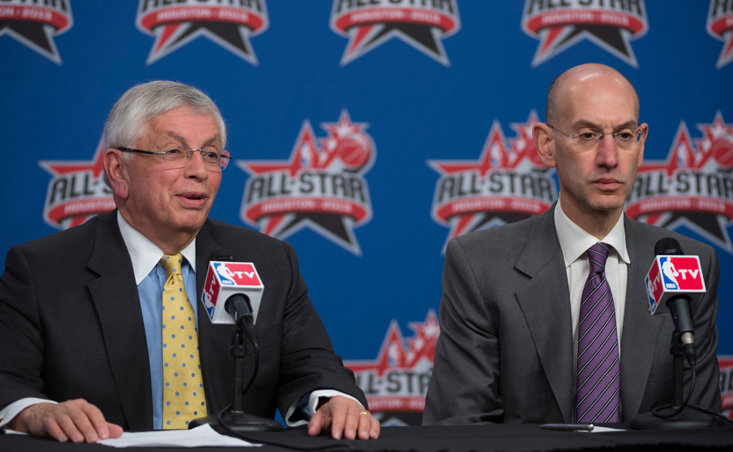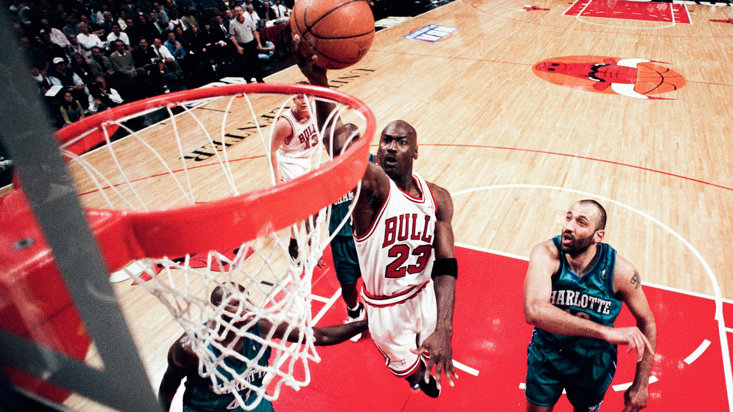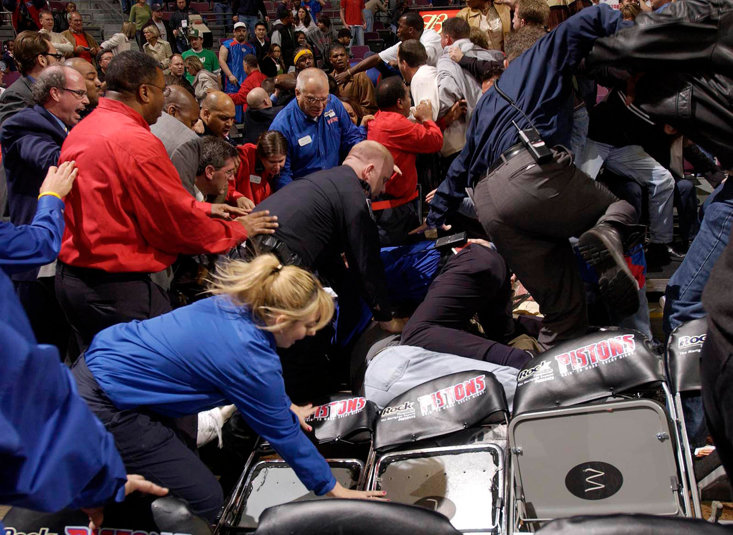The late David Stern moulded the NBA into what it is today, dealing with some of the NBA’s incredible controversies over the years. Many fans love to hate what he did, but any fan of basketball can admit that he raised the game into what it is today, earning more money for athletes and owners alike as well as taking the game from a dark place in the 70s and turning it into a show for people around the globe.
Stern retired in 2014, allowing the way for his understudy Adam Silver to take over, who has already earned kudos from basketball pundits, fans and players thanks to his actions with the G-League and the controversial China situation. It’s clear that Silver learned a lot from his predecessor as he dealt with some incredible situations over the years.

It all began back in 1984, when Stern replaced Larry O’Brien as commissioner during one of the darkest periods in NBA history. The NBA’s rowdy younger brother, the ABA, were getting some of the American basketball audience, giving fans a glimpse of ‘street-ball’ with the likes of Julius ‘Dr. J’ Erving and David ‘Skywalker’ Thompson showing off unbelievable dunks in-game and in crazy half-time shows (which birthed the all-star dunk contest). Stern decided that the NBA should embrace the ABA, and accept it’s teams into the national league.
Stern himself worked as Vice President, putting together two huge policies that changed the game forever. First, mandatory drug tests becoming commonplace for players after it was reported by the LA Times that 40-75% of NBA stars had been using cocaine. The second policy was to introduce the salary cap, where all players would share 53% of all revenues, pleasing players who got a fair deal and owners who got secure investments within contracting players as well as a growing profit margin if the team performed well.
When David Stern stepped in, the league already had stars such as Larry Bird and Magic Johnson, who were incredible players in their own rights, but what followed could be the most fortunate bit of luck a sporting commissioner could ever receive: the 1984 NBA draft. The class of ‘84 featured five future Hall of Famers, including Hakeem Olajuwon, John Stockton, Charles Barkley and the jewel in the crown, Michael Jordan. Jordan’s arrival brought in the kind of star power that the NBA was desperately seeking, with Stern focusing his efforts away from marketing teams to marketing star players.

In a sense, that was step one of his masterplan to cement himself as the best commissioner in US sporting history. He managed to get brands like Nike into the game, ending the domination of Adidas and Converse, and allowing players to create deals with these labels, securing their own financial security and eventually birthing brands made out of the superstars.
Stern’s growth of the league throughout the eighties expanded into international territory, with video tapes being sent around the globe to spread the word of basketball. With the might of the NBA growing, the commissioner started to push the agenda that professional basketballers should be allowed to play in the Olympics.
Thanks to his efforts, we were given the 1992 Dream Team, with Michael Jordan, Magic Johnson, Charles Barkley and more all making up an all-star squad that fans had dreamt of seeing, delivering gold for the USA in a style no one had seen before. This would be the second reason why Stern is revered as one of the best sporting operators ever, and no one could argue with it, but there was a moment before the creation of the Dream Team that is possibly his greatest triumph.
In 1991, Magic Johnson retired from the league after revealing that he was HIV-positive. With Stern by his side, Johnson received backlash from the general public due to the demonised public image of the disease, with many fearing that it could be spread through handshakes or through sweat and endangering others.
Stern decided to stand up against the backlash of the public, allowing Johnson to take part in the 1992 All-Star game and later in the Dream Team after consultations with experts and reading medical literature about the disease. The NBA’s owners were told about everything they needed to know by the commissioner, detailing the NBA’s new infection-control protocols.
The legacy of a commissioner is defined by the long-term success of the policies, in a similar way to politicians. A reactionary policy was created back in October 2005, with the NBA’s dress code coming into play for all stars in the league, banning the players from wearing fashion associated with hip-hop culture, in response to ‘The Malice at the Palace’ brawl between the Detroit Pistons and Indiana Pacers in 2004.

Stern felt the need to tidy up the league’s image and show that it’s athletes were professional. A lot of people in the US felt that it was right for the NBA to implement the code, agreeing with the sentiment that employees have a dress code just like the rest of the country, however there were players who disagreed with the new rules, believing the code to be racist as it targeted young black men and associated them with crime and/or thuggish behaviour.
Allen Iverson famously commented “the dress code is not who I am and doesn’t allow me to express myself.” However, he and other players abided with the league’s ruling.
Many players were not so keen on being dictated to, with their sponsorships to sports clothing companies potentially being affected by it, but eventually players started to embrace the rules, having fun with what they could wear and causing change in men’s fashion. In more recent times, the code has become more lenient, with Adam Silver allowing players to express themselves more.
David Stern might’ve been harsh and hasty with the rulebook, but it was a code that did exactly what it was intended to do. It cleaned up the image and created the modern day basketball stars like LeBron James, Steph Curry and Giannis Antetokounmpo, who are role models to children around the world for their exemplary behaviour on and off the court.
Stern’s impact on the sport of basketball during his 30-year tenure as NBA commissioner simply cannot be understated.